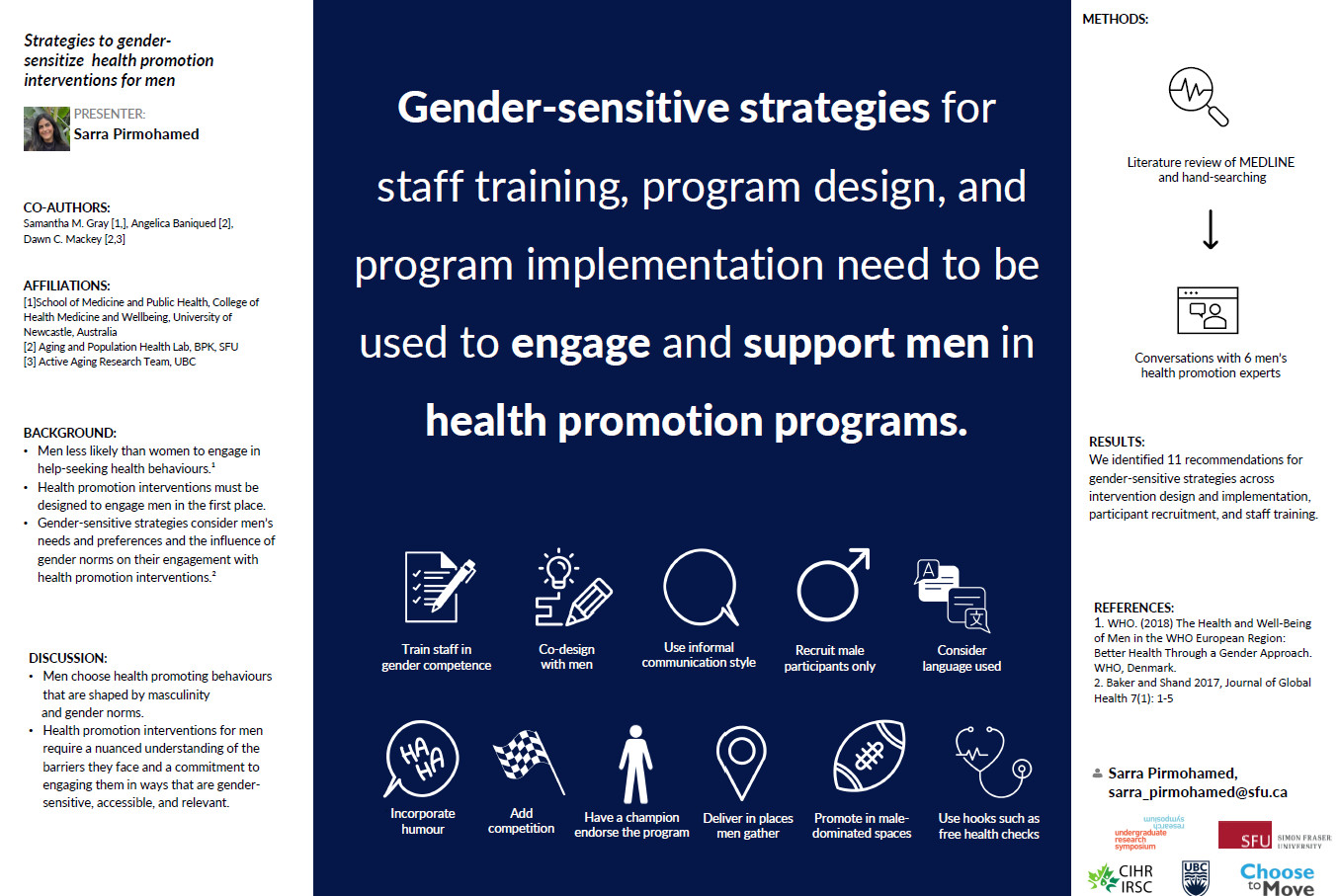Strategies to gender-sensitize health promotion interventions for men
Main Article Content
Abstract
Background: Men are less likely than women to engage in help-seeking health behaviours. To support men, health promotion interventions must be designed to engage them in the first place. Gender-sensitive strategies consider men’s needs and preferences and the influence of gender norms on their engagement with health promotion interventions. The purpose of our study was to identify gender-sensitive strategies that could be applied to design or adapt health promotion interventions for men.
Methods: We used a two-pronged approach to identify gender-sensitive strategies. First, we searched MEDLINE for peer-reviewed articles reporting on health promotion interventions for men. Second, we interviewed 6 academic experts in men’s health promotion via Zoom calls. We summarized data from the literature review and interviews and then coded the recommended strategies using an established adaptation coding framework.
Results: We identified 11 recommendations for gender-sensitive strategies across intervention design and implementation, participant recruitment, and staff training. Recommendations included: co-designing the program with men, incorporating humour and informal communication, adding elements of competition, making the program men-only, promoting and delivering in spaces where men already gather, having a champion to endorse the program, using masculine-friendly language in program and recruitment materials, using health checks as a recruitment strategy, and providing gender-competence training for intervention staff.
Discussion: Men choose health promoting behaviours that are shaped by masculinity and gender norms. Thus, health promotion interventions for men require a nuanced understanding of the barriers they face and a commitment to engaging them in ways that are gender-sensitive, accessible, and relevant.
Research Team Members:
Samantha M. Gray, School of Medicine and Public Health, College of Health Medicine and Wellbeing, University of Newcastle, Australia
Angelica Baniqued, Aging and Population Health Lab, Department of Biomedical Physiology and Kinesiology, Simon Fraser University
Dawn C. Mackey, Active Aging Research Team, University of British Columbia
Article Details

This work is licensed under a Creative Commons Attribution-NonCommercial-NoDerivatives 4.0 International License.

